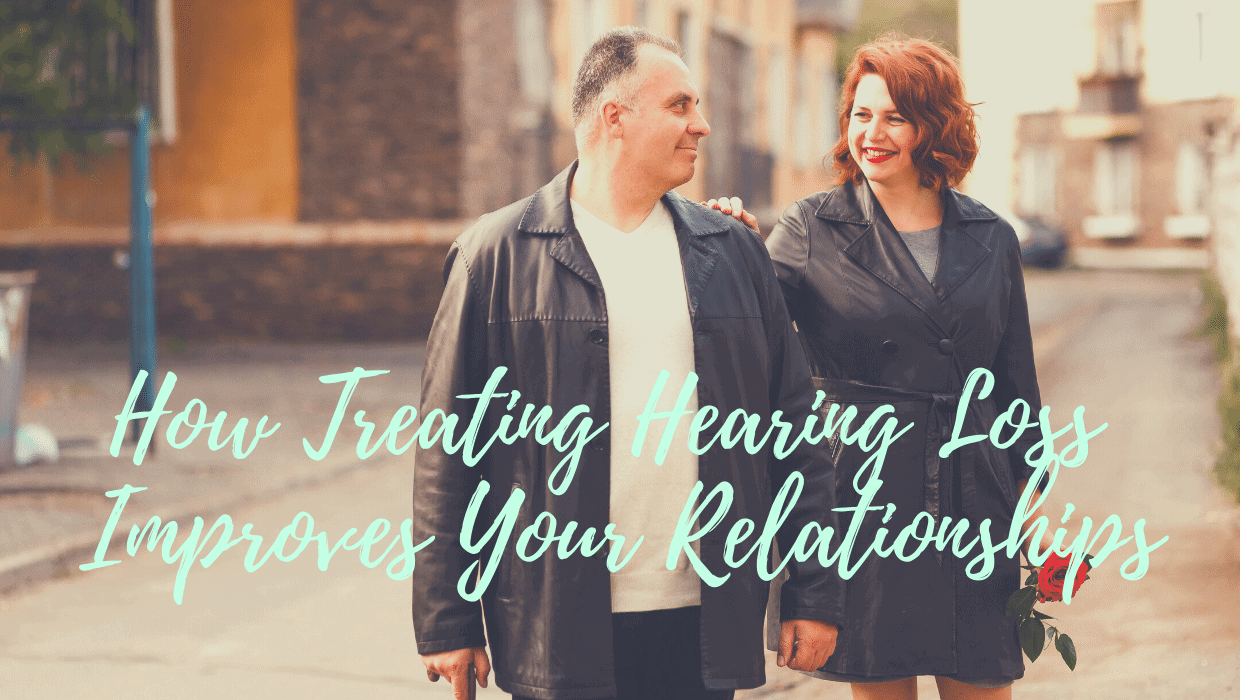- How You Can Treat Tinnitus - May 15, 2024
- Everyday Objects That Can Cause Hearing Loss - May 5, 2024
- The Impact of Smoking and Alcohol on Hearing: Breaking Down the Risks - April 28, 2024
For your well-being and quality of life, untreated hearing loss may have a wide variety of consequences. However, it hurts our closest relationships the most. And it all starts with a communication breakdown.
I can hear you, but I can’t understand you
One of the core effects of hearing loss is not that you find it harder to hear the doorbell. Rather, it becomes more difficult to understand other people’s words.
With hearing loss, speech comprehension becomes a struggle. The higher frequencies of sound are the first to go, so it can be difficult for people with hearing loss to distinguish between such high-frequency speech sounds, such as “p” and “b” or “th” and “s.” This might make the word ‘cat’ sound equally like a whole host of other unrelated but voiceless consonant words, such as ‘pat,’ ‘fat,’ ‘sat’, and so forth.
Hearing loss often interferes with the ability to anticipate speech patterns, resulting in confusion or a delay in comprehending what others are saying.
In interpersonal relationships, the difficulty with speech recognition can cause fractures. Asking individuals to repeat themselves is also one of the most common symptoms of hearing loss. Continuously asking for repetition can lead to irritation and dissatisfaction over time and make the person speaking feel like the other person isn’t listening to them.
The fact that hearing loss also leads to social anxiety and social isolation is no wonder. Individuals tend to pull away when they fail to hear their friends and loved ones and are not comfortable addressing their hearing improvements. People with untreated hearing loss start isolating themselves over time and avoid doing the stuff they love to do. Higher levels of depression, and even dementia, have been associated with untreated hearing loss.
The secret to a good relationship
Keeping a consistent communication line is the secret to any good relationship, as any marriage therapist will tell you. But this advice is often given to two people who don’t have any issues with their hearing. It is doubly essential advice when one person in the relationship has compromised hearing.
The small talk, the mutual laughs, and the conversations about topics that some would find trivial set any relationship’s tone. Untreated hearing loss means that they miss those brief, intimate experiences. This can trigger anger and dissatisfaction and a lack of intimacy, and a sense of alienation on both partners’ part. As they can not hear a response, one partner may stop talking, and the other person starts to feel more lonely and alone.
This is not just speculation; it is already happening. A study published in the American Speech-Language-Hearing Association Leader in 2007 revealed that 35 percent of respondents with hearing loss reported challenges in all their relationships. Still, their relationship with their significant other suffered the most. According to audiologist Patricia Chute, who is also a professor at Mercy College in New York, “too often spouses blame each other’s ability to listen when it is actually a hearing problem that is chipping away at their ability to communicate.”
The benefits of treating your hearing loss
The good news is that there is hope for many individuals with hearing loss who are seeing their relationships endure challenges.
Hearing aids are exceptionally good at restoring hearing capacity. Although older devices were clunky, required frequent maintenance and adjustments in batteries, modern hearing aids perform better in noise, can cancel feedback and wind noise, and may even come with directional microphones to help you focus on the sounds you want to hear.
Many come fitted with wireless technology and batteries that are rechargeable. Some are even so small to appear invisible within the ear.
Hearing aids can lead to life changes that can have knock-on effects on your close relationships in life. People with hearing aids enjoy better contact with their loved ones and improve communication, increasing the possibility of satisfaction in relationships.
Do you have any concerns about your hearing aids? To talk with one of our hearing experts or make an appointment, please contact us. We’re on hand to support you and take care of all your listening needs.

